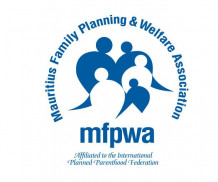

| 31 March 2016
Family Planning Association of Nepal
Established in 1959. the Family Planning Association of Nepal (FPAN) is Nepal's first national family planning service delivery and advocacy organization. It is a major collaborator of the Government of Nepal's national sexual and reproductive health (SRH) program, contributing a greater percentage of all SRH services in Nepal annually. FPAN serves Nepalese people in 44 districts, focusing on the poor, marginalized, socially excluded and underserved (PMSEU) populations, which include female sex workers, people living with HIV (PLHIV), LGBTIQ people, injecting drug users, men who have sex with men (MSM), migrant workers, people with disabilities (PWD), survivors of gender-based violence (GBV), urban slum dweller and people affected by disaster and crisis. The mission of FPAN is to "champion a volunteer movement for increased provision of SRHR to all, particularly to those most at risk, marginalized, and under-served". The planned outcomes set by FPAN for the strategic planning period (2016-2022) include: Nepal Government respects, protects and fulfil sexual and reproductive rights and gender equality; Nepalese people empowered to act freely on their sexual and reproductive health and rights; a high quality integrated sexual and reproductive health services delivered; and a high performing, accountable and strong FPAN. The success of FPAN is due to its extensive and diverse network of service delivery points, as well as its expertly trained staff and volunteers who provide services in areas where they would otherwise be unavailable. FPAN provides an Integrated Package of Essential Services (IPES), which includes sexuality counselling, contraception, including emergency contraception, safe abortion, STIS/RTIs, HIV & AIDS, obstetrics, gynecological and sexual & gender-based violence services. These services are provided across 974 service delivery points (including 270 clinical SDPs, 22 family health clinics, 56 community health clinics, 75 associate clinics, 117 mobile teams, and 794 non-clinical service delivery points). FPAN provides approximately four million SRH services each year across its service delivery points, with family planning accounting for 40%, STIs/RTIs for 14%, gynaecological services for 12%, HIV services for 10%, and other services accounting for the remaining 24%. FPAN has eight clinical training centres that are connected to its family health clinics, which provide full range of family planning and reproductive health services. The training centres are accredited by the National Health Training Centre, (MoHP). These centres provide a variety of family planning and sexual and reproductive health training to health care providers from FPAN, government, and non-governmental organizations (NGO) health facilities.

| 31 March 2016
Mauritius Family Planning & Welfare Association
Established in 1957 as a grass-root movement, the Mauritius Family Planning & Welfare Association (MFPWA) was one of the earliest organizations in Africa focusing on family planning issues. As the nation struggled to find a way to address pressing population issues, a group of advocates formed MFPWA and started to provide contraceptive services directly to women. In 2018 the MFPWA is governed by an Act of Parliament 2018 as a body corporate. Today, the organization caters for the sexual and reproductive health (SRH) needs of the whole community. It also has particular strands of activity relating to specific groups including sexually abused children, elderly people, men and marginalized populations on Rodrigues and Agalega Islands. MFPWA has 30 staff and 50 volunteers and offers services through 2 permanent facilities and several service points. It also runs a day care centre for infants and children as a social enterprise initiative. The Association delivers services that include family planning, the prevention and management of HIV through voluntary counselling and testing, infertility management, antenatal and post-natal care, post-abortion care, the diagnosis and treatment of sexually transmitted infections (STIs) and screening for cancers of the reproductive systems in particular breast, cervical and prostate. The Association began its first rehabilitation of sexually abused children in 2003 and has built a solid reputation in the domain. Services for the rehabilitation of victims of gender based violence had been extended to Rodrigues Island on a pilot basis in 2019. The Member Association also operates peer-educator-led outreach programmes targeting work places, namely: hotels, manufacturing industries, call centres, male-dominated sectors such as transport, police, agriculture and fisheries. MFPWA has played a critical role in promoting the integration of comprehensive sexuality education into the national school curriculum and its powerful, informed advocacy has been influential in shaping government’s agenda and policies on SRH and population issues. MFPWA partners with and advises government departments which address health, quality of life, women’s rights, child development, family welfare, social security and youth and sports. MFPWA works with a large number of non-governmental organizations (NGOs), para-statal and government institutions and international partners like UNFPA, Help Age International and the European Union.







